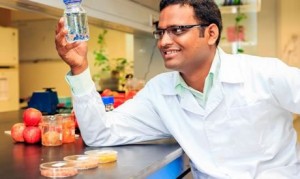The UK supplier of snacking, breakfast, baking and cooking products, Whitworths, is specifying tesa Lift & Reseal tape as part of its drive to provide healthy, nutritious and long-lasting products to the nation’s consumers. Packaging represents an essential element in the preservation of food from the beginning of every distribution, through to the delivery, purchase, subsequent storage and final usage. tesa offers a range of tapes that provide a safe, clean and easy solution in this application field, designed to deliver the best cost-performance ratio. The range also includes tesa Lift & Reseal, a residue-free finger lift resealing tape offering a clean, easy to use solution for securely reclosing food packs. The tape’s robust adhesive allows for a secure reclosure system. Using an adhesive which will not leave messy residues, the packs can be opened and reclosed at least 20 times. The adhesive mass will not discolour and packaging keeps its perfect look for up to 24 months. A fingerlift edge on Lift & Reseal gives consumers an easy to use product. In the food retail industry, convenient packaging solutions have been identified as a key factor in the consumer’s product selection process. Now, one of the UK’s largest supermarket chains is stocking products featuring tesa Lift & Reseal on different ranges of snacking and home baking products.
New research suggests cost-effective method of producing potable water.
Scientists at the National University of Singapore (NUS) have used apple and tomato peels to treat water and purify it for consumption.
This low-cost method of water treatment has been developed  by Ramakrishna Mallampati and is designed to benefit those areas without readily available clean water by using fruit peels to remove various types of pollutants.
by Ramakrishna Mallampati and is designed to benefit those areas without readily available clean water by using fruit peels to remove various types of pollutants.
Tomato peel is an effective adsorbent and Mallampati’s study revealed that it can effectively remove contaminants including dissolved organic and inorganic chemicals, dyes and pesticides.
Additionally, Mallampati and associate professor Suresh Valiyaveettil explored the capabilities of apple peel within water purification.
Zirconium-loaded apple peels were found to be able to extract anions such as phosphate, arsenate, arsenite, and chromate ions from aqueous solutions.
Both Mallampati and Valiyaveettil believe that their findings can be applied for water purification to benefit areas most affected by potable water shortage and technological disadvantage.
The findings were published in the American Chemical Society journal ACS Applied Materials & Interfaces in May 2013.

































